Yes, you can sleep with the fan on at night, but experts issue this warning to ensure it's comfortable
Luckily, there's a simple fix for those with allergies and dry skin
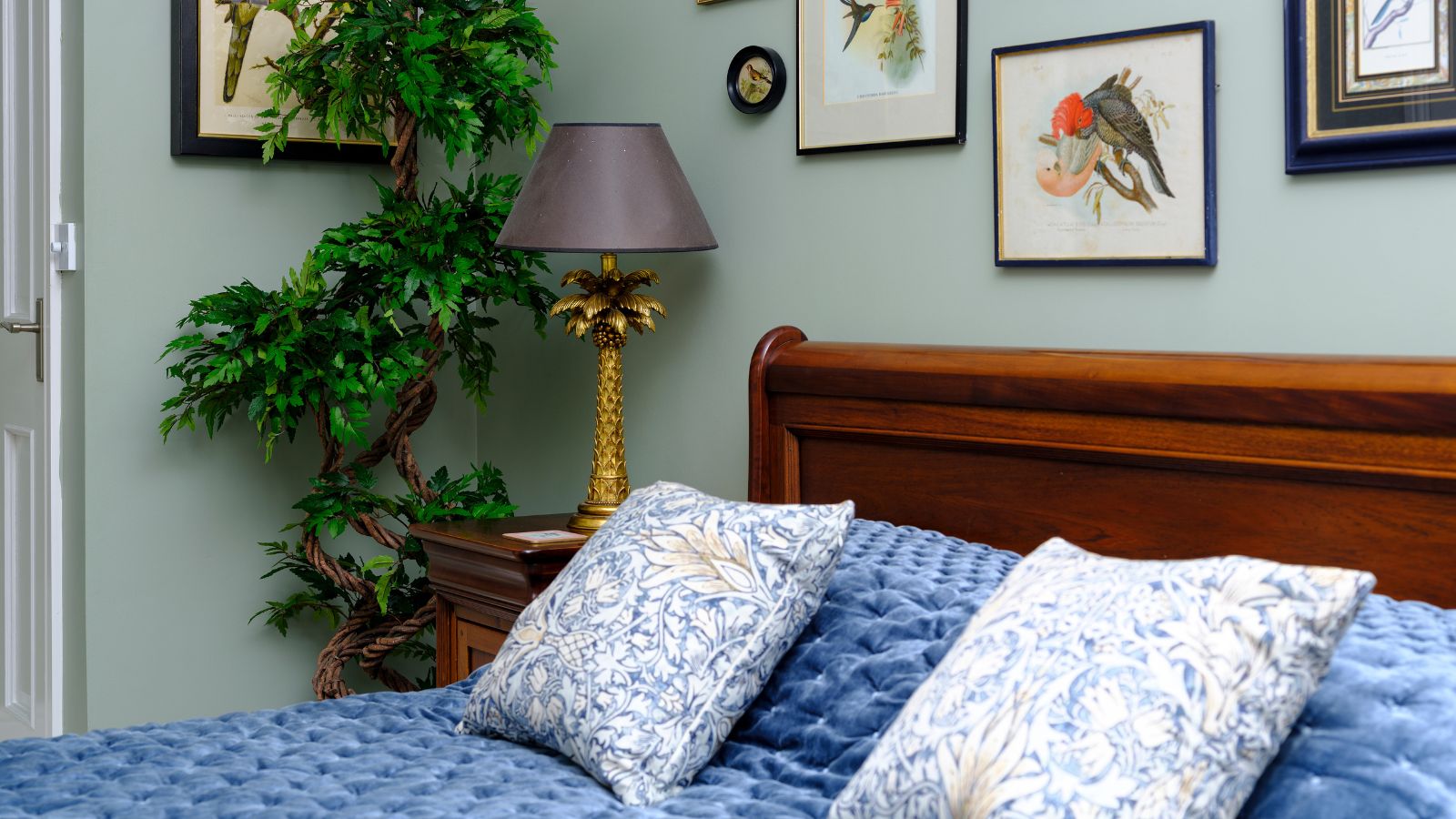
As summer sets in, sleeping with a fan on can feel like the only way to get through a hot, sticky night. It’s a simple, energy-saving solution – and the white noise can be soothing, too.
But while the best fans offers immediate relief, it may be causing more harm than good. According to experts, the airflow can aggravate allergies, dry out skin, and even disrupt your sleep.
So should we stop using fans overnight altogether? Not necessarily – but it’s worth knowing the risks, and how to get around them.
Can you sleep with a fan on overnight?
In short, yes – but it’s not ideal for everyone. While fans create a cooling breeze, they also stir up dust, pollen and dry air, which can irritate the skin and airways.
‘Fans can dehydrate your throat and nostrils,’ says Dr Emma Lin, sleep medicine physician and co-founder of ReadyO2. ‘They circulate dust and pollen, which might cause sneezing or coughing,’ she adds, highlighting the effects of letting common household allergens build up at home.
If you’ve ever woken up with a dry throat, itchy eyes or blocked sinuses, the fan could be to blame. Dr Hussain Ahmad, a consultant at Click2Pharmacy, explains: ‘Fans blow around allergens and dry out the air, which can make allergies worse and dry your skin.’
'If the air's already dry, fans can cause dry skin, dry eyes, or even dry out your nose and throat, which might leave you waking up with a scratchy throat or blocked sinuses,' he adds.
Even healthy sleepers can experience discomfort from overnight airflow, especially if the fan is pointing directly at the face. Over time, this dryness can affect sleep quality and increase sensitivity to airborne irritants. This is also one of the expert-recommended reasons why you should turn your AC off at night.
According to Lane Martin of indoor air quality company Modern PURAIR, the issue often lies in what’s in the air. ‘If your fan is just recirculating dust and allergens, it could be making things worse,’ he says.
How to do it safely and comfortably
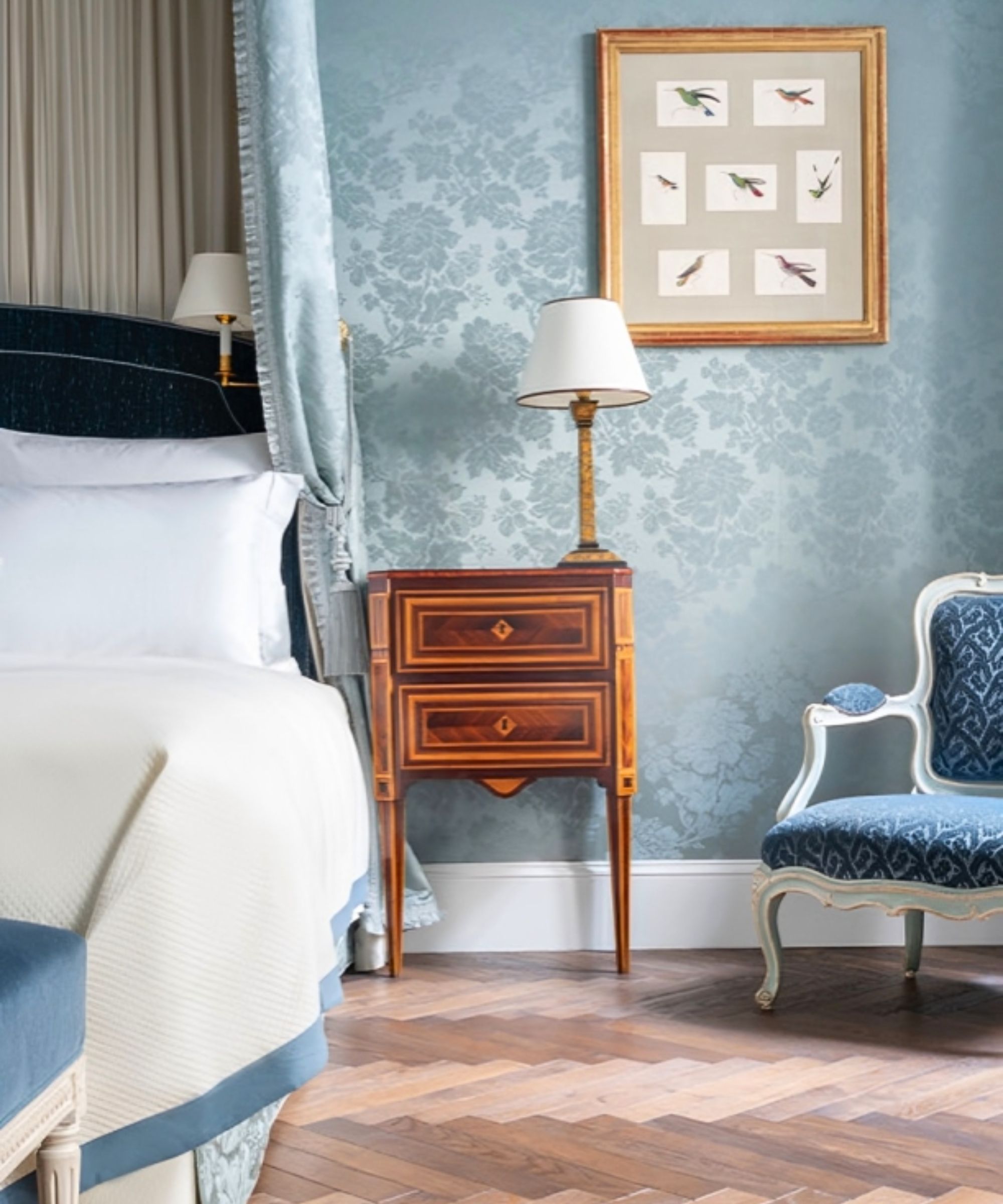
Sleeping with a fan can cause dry skin, allergy symptoms and breathing issues, but good air quality can fix this.
If you’re not ready to give up your fan, there are easy ways to make it safer and more comfortable. My home doesn't have AC, and I sleep with a fan on overnight whenever the weather's a little too warm. Because I pair it with one of the best air purifiers, I never feel the potential side effects from running a fan overnight.
First, regularly cleaning your fan will keep it free of dust and allergens. ‘Clean your fan regularly and try not to point it straight at your face,’ says Dr Hussain Ahmad. Oscillating fans or those aimed at the wall can reduce negative effects.
Next, improve the air quality in your room. ‘Use an air purifier to remove dust and pollen,’ says Dr Emma Lin. ‘And add a humidifier if the air is too dry – it keeps your nose and throat from drying out.’ The Sharper Image Ultrasonic Humidifier at QVC is an excellent, budget-friendly choice.
Martin agrees: ‘Pairing a fan with an air purifier or clean HVAC system means you’re not just blowing irritants around all night.’
Using an air purifier in my bedroom has almost eliminated my asthma and allergy symptoms. I use the Molekule Air Mini+ as it's small, quiet and has some of the most effective purification technology available, but the Coway Airmega Aim at Amazon is a more budget-friendly option that's great at purifying a room.
Simple changes to your bedding and routine can help too. Choose natural fabrics like cotton or bamboo for better airflow, and avoid memory foam, which traps heat. ‘A warm shower before bed helps your body cool naturally,’ says Dr Emma Lin.
You can also cool down the room itself. Keep blinds closed during the day to block heat, open windows when it’s cooler outside, or try placing a frozen water bottle in bed an hour before sleep.
Finally, if you have asthma, hay fever, or other respiratory conditions, speak to a specialist. ‘There’s no one-size-fits-all,’ says Dr Emma Lin, ‘but everyone benefits from clean air and good sleep.’
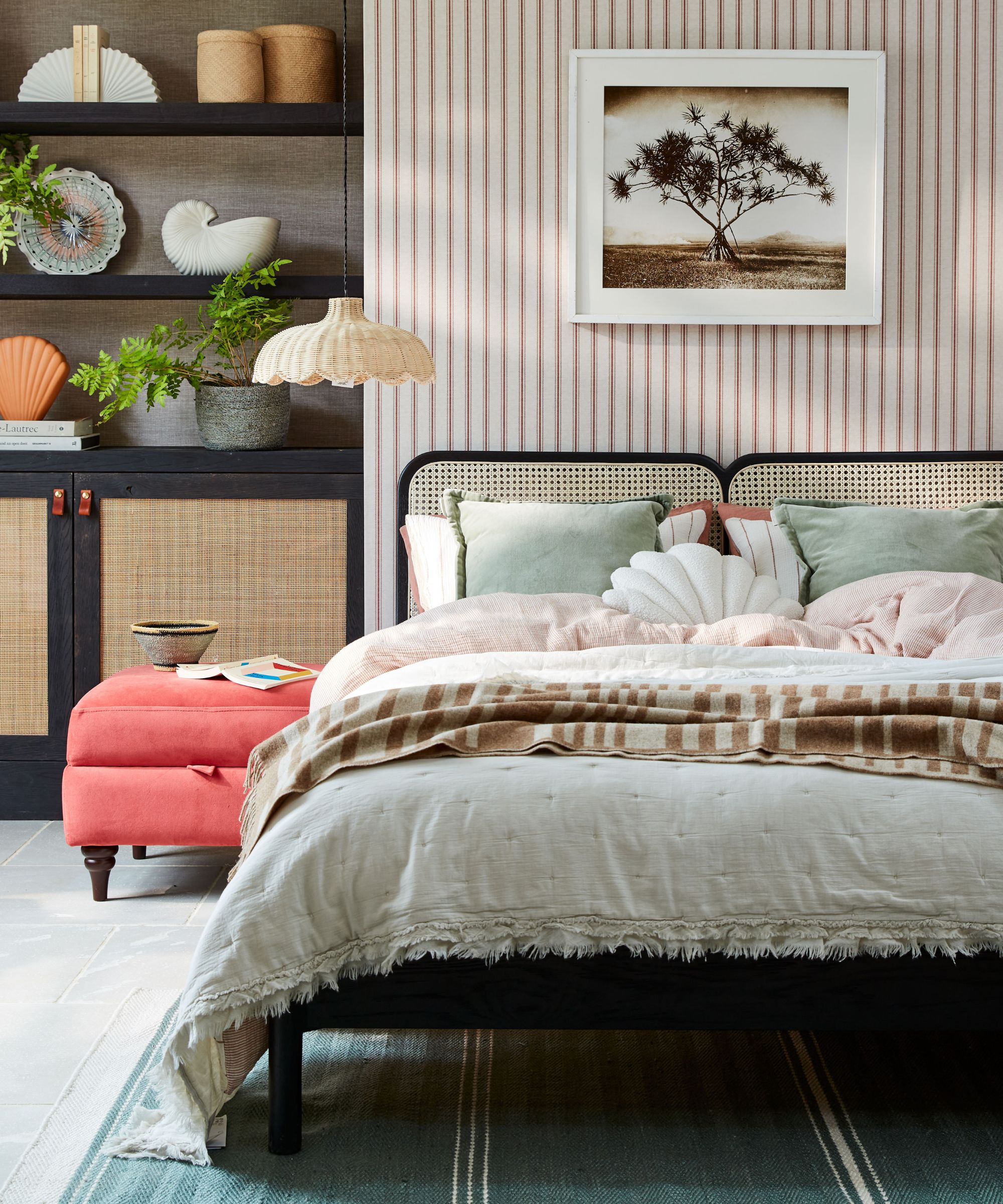
An air purifier and humidifier can combat the negative effects of sleeping with the fan on overnight.
What to shop
To guarantee a good night's sleep while the fan's running, free of allergies and dryness, make the most of the useful technology out there. All prices correct at time of publication.
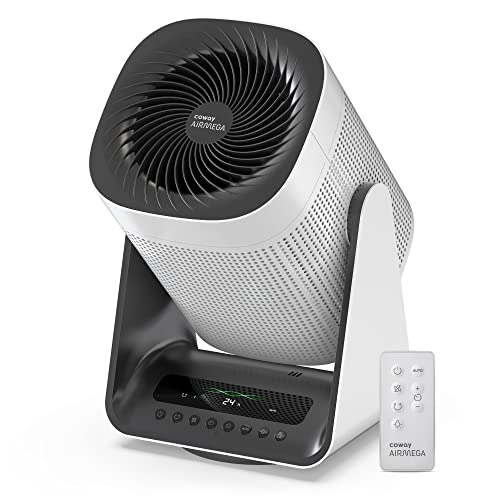
What's great about this affordable but effective air purifier is its ability to aim purified air in a certain direction. You can basically use it as a fan and a purifier simultaneously, making sure the air that breezes over you is clear of any dust, pollen or allergens.
Read more in our full Coway Airmega Aim review.
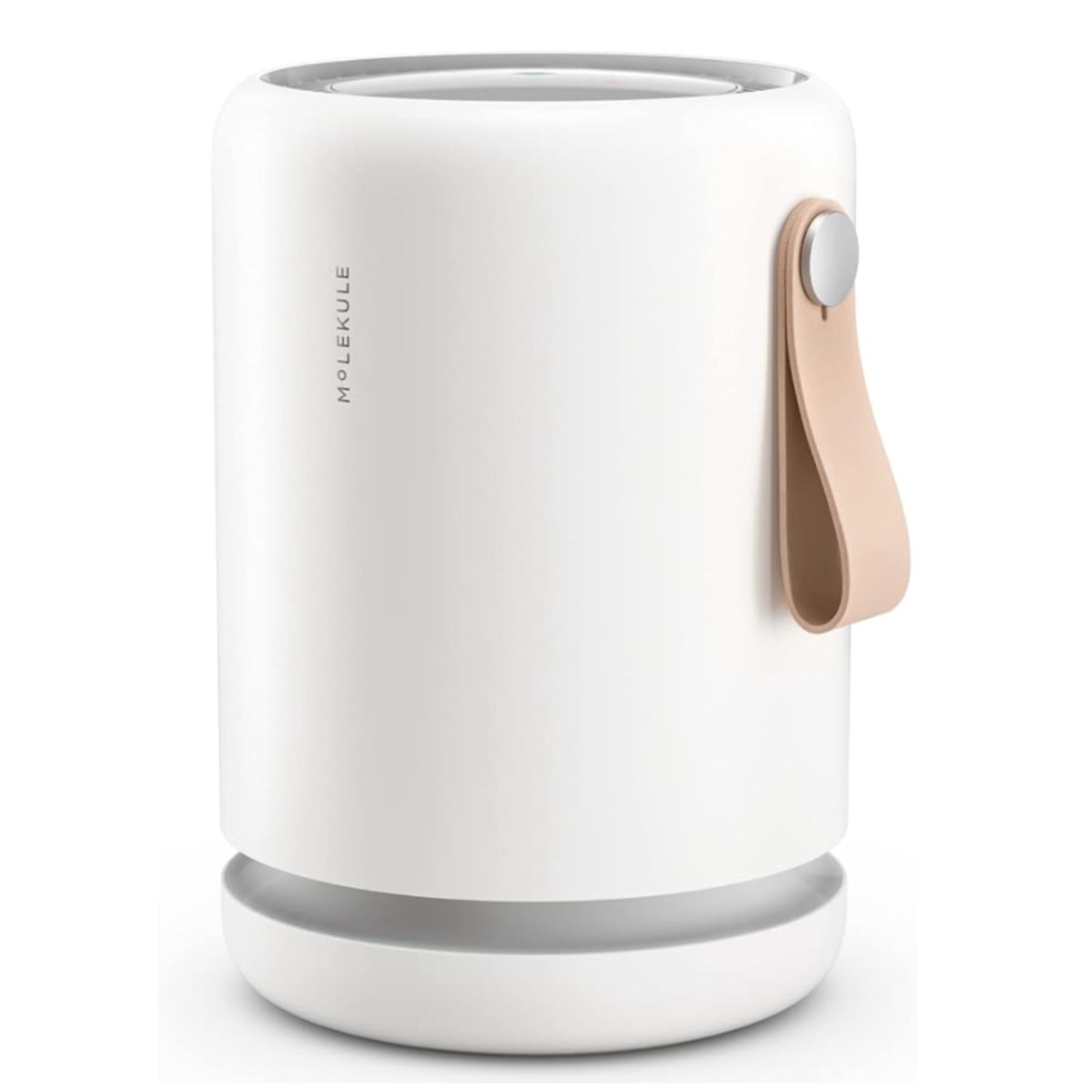
In the year that I've been using the Air Mini+ on a daily basis, my asthma and allergy symptoms have almost completely disappeared. Molekule's purifiers have 'PECO' technology, which deactivates pollutants at the molecular level, resulting in more effective purification compared to other brands.
Read more in my full Molekule Air Mini+ review.
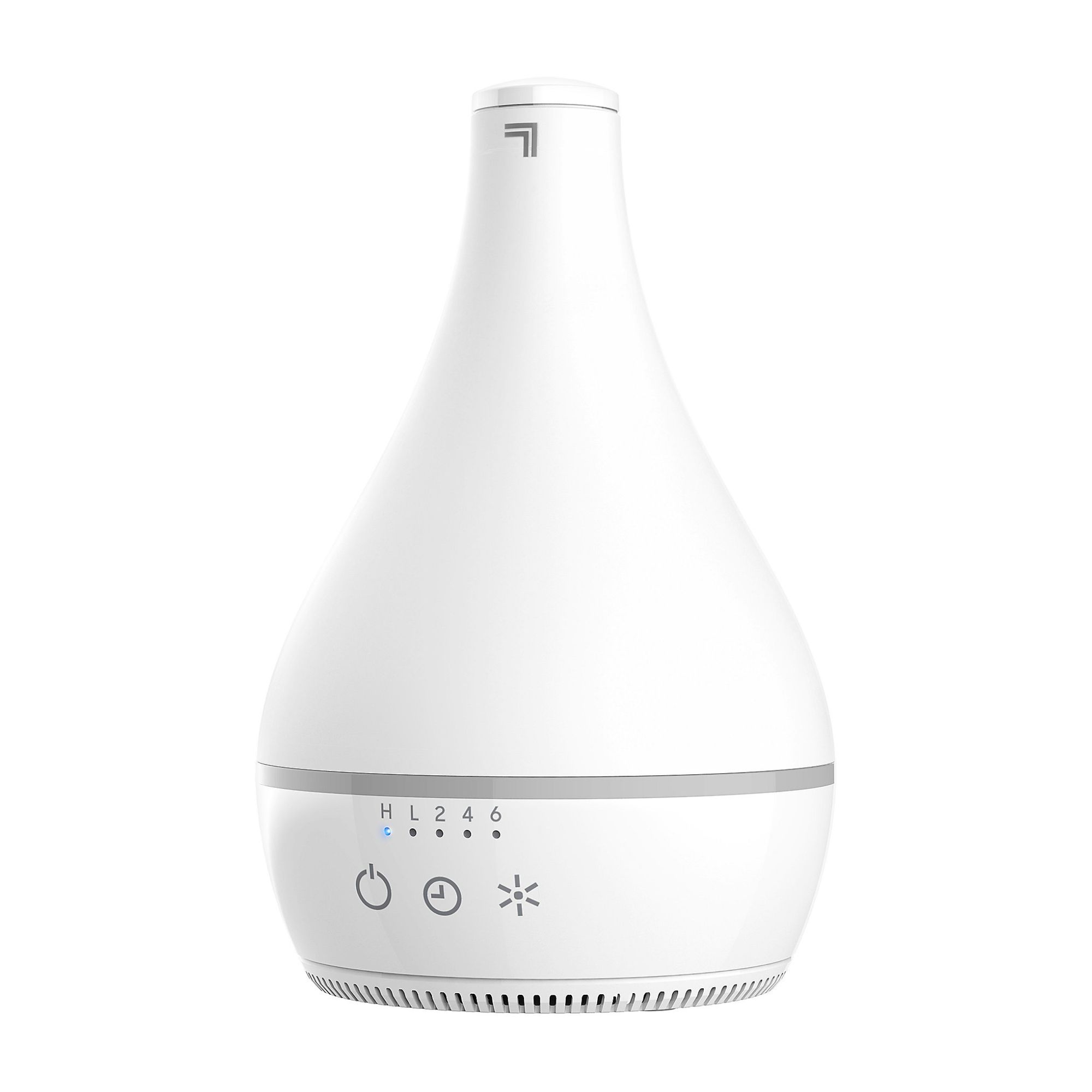
This affordable humidifier doubles up as a diffuser, so on top of maintaining healthy humidity levels, you can use any of your favorite essential oils to create a pleasant scent in your indoor space.
FAQs
Can you sleep with a fan and humidifier on?
Yes, and it's one of the expert-recommended tips to ensure that your room has enough moisture when running the fan won't dry out your skin, nose or throat too much.
Can you sleep with a fan on when sick?
Running the fan overnight won't necessarily make you more sick, but it can definitely worsen your symptoms. As the steady breeze from a fan can cause dryness, trigger allergy symptoms or worsen your breathing, it's generally best to avoid doing so if you're ill.
But if you have an air purifier and humidifier set up, you should be able to have a comfortable sleep without the fan worsening your symptoms.
Can you sleep with a fan on and the window open?
This mostly depends on your area's air quality. If you live in a built-up area, a way to improve your air quality when living in a city is to avoid letting the pollutants in, and if you're running a fan at the same time, these pollutants will be pulled in and circulate around the room.
If you live in an area with cleaner air, opening the window can allow fresh air to enter your space, while letting out compromised air from cooking, candles or showering.
If the outside air is hotter or more humid than indoors, running the fan with a window open may not make you feel all that much cooler.
Can you sleep with a fan on in winter?
The air is naturally drier in the winter months, so sleeping with the fan on overnight will cause more side effects than when doing so during summer.
Plus, it's not the most environmentally friendly method. There are plenty of ways to achieve the best temperature for sleep, but running the heating and a fan simultaneously might not be the best move.
Is it bad to sleep with a fan on?
Punteha van Terheyden, Head of Solved at Homes & Gardens, has some expert tips on how to sleep better:
'Getting a comfortable night's sleep is incredibly important to our wellbeing, so if a fan helps you sleep, there's nothing wrong with using it.
'However, if you find having a fan running overnight gives you a sore or dry throat, or wakes you up from feeling stuffy or cold, use the timer function to have it turn off an hour or so after you're asleep.
'That way, you get the short-term comfort and cooling to help you drift off, but any unwanted symptoms from running it for many hours will be skipped.'
Punteha recommends the Pelonis Tower Fan with remote from Amazon, adding, 'It's quiet and has an easy-to-use timer function. The remote makes it easy to tweak when you're in bed and tired, or wake up in the night and want to change the settings with ease.'
Next, learn the mistakes compromising your air quality, and find out about the best fan we've ever reviewed, the Shark FlexBreeze, which will quietly but effectively cool any room.
Design expertise in your inbox – from inspiring decorating ideas and beautiful celebrity homes to practical gardening advice and shopping round-ups.

Dan is the Home Tech Editor for Homes & Gardens, covering all things cleaning, smart home, sound and air treatment across the Solved section. Having worked for Future PLC since July 2023, Dan was previously the Features Editor for Top Ten Reviews and looked after the wide variety of home and outdoor content across the site, but their writing about homes, gardens, tech and products started back in 2021 on brands like BBC Science Focus, YourHomeStyle and Gardens Illustrated.
They have spent more than 200 hours testing and reviewing vacuums for Homes & Gardens, and have even visited Dyson's engineering labs for the full low-down of the ins and outs of our trusty cleaners.
Dan has a BA in Philosophy and an MA in Magazine Journalism. Outside of work, you'll find them at gigs and art galleries, cycling somewhere scenic, or cooking up something good in the kitchen.
You must confirm your public display name before commenting
Please logout and then login again, you will then be prompted to enter your display name.
